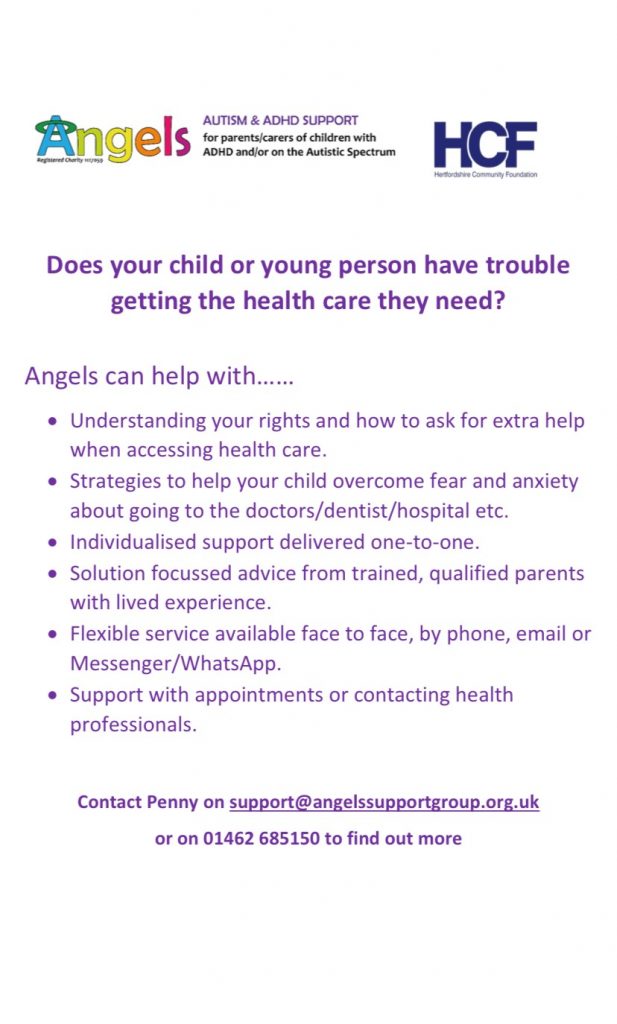Does your child struggle to access healthcare, such as doctor, dentist or hospital appointments?
At Angels we have found that many of our children can have problems getting the medical help they need, for lots of reasons:
- They might find it hard to know or say when something is painful or they feel ill
- They might find going to the doctors or other medical appointments really difficult and stressful
- They may be afraid of being treated, doing blood tests or having x-rays
- They might find personal care, washing, haircutting etc, very difficult to do
This can mean that as they get older, if these difficulties aren’t addressed, there is a risk they won’t be able to keep as healthy as they could. We know that the health outcomes and life expectancy of people with autism, learning disabilities or other neurodivergent conditions aren’t as good as the rest of the population.
At Angels we have experienced many of these challenges as our own children have grown up and we know how difficult it can be to help our children to access healthcare.
We will:
- Run workshops with practical tips on how to help your child to access healthcare, and information on knowing your child’s rights and asking for reasonable adjustments. Check our Term Timetable to see when we are next running a workshop.
- Support you with appointments or other meetings that you might have with health professionals
- Work with you one-to-one to help you develop strategies to support your child with specific needs relating to access to healthcare.
If you would like more information, or would like to book a one to one appointment, please use the form on the One To One page of this website.
Resources for Parents and Carers in case your child/ young person needs to access healthcare
We have pulled together some key resources to try to support you and to help prepare for a situation where your child might need to access healthcare, to help things go as smoothly as possible.
It is a good idea to make a “Healthcare Passport” for your child, that they can take with them whenever they need to go to the doctors or into hospital.
There are some good examples of different versions online. In Hertfordshire this Children’s My Healthcare Passport has been developed in partnership with parents. Alternatively, try this Editable Hospital Passport or this one which was developed by PinPoint in Cambs in partnership with Addenbrookes Hospital.
This excellent post from Steph’s Two Girls blog covers a number of aspects of preparing for a hospital stay, and includes some good templates for hospital passports
Stephs Two Girls Top Tips for hospital with a child with autism
If your Young Person is an adult with autism or a Learning Disability in Hertfordshire, they should have a Purple Folder – follow the link to find out more and request one. Health Services in Herts are trained to work with these.
The Council for Disabled Children has pulled together a great deal of useful information about accessing healthcare for children with SEND, including more template passports and links to specific NHS advice for staff on supporting children and young people with SEND. This can be found here


